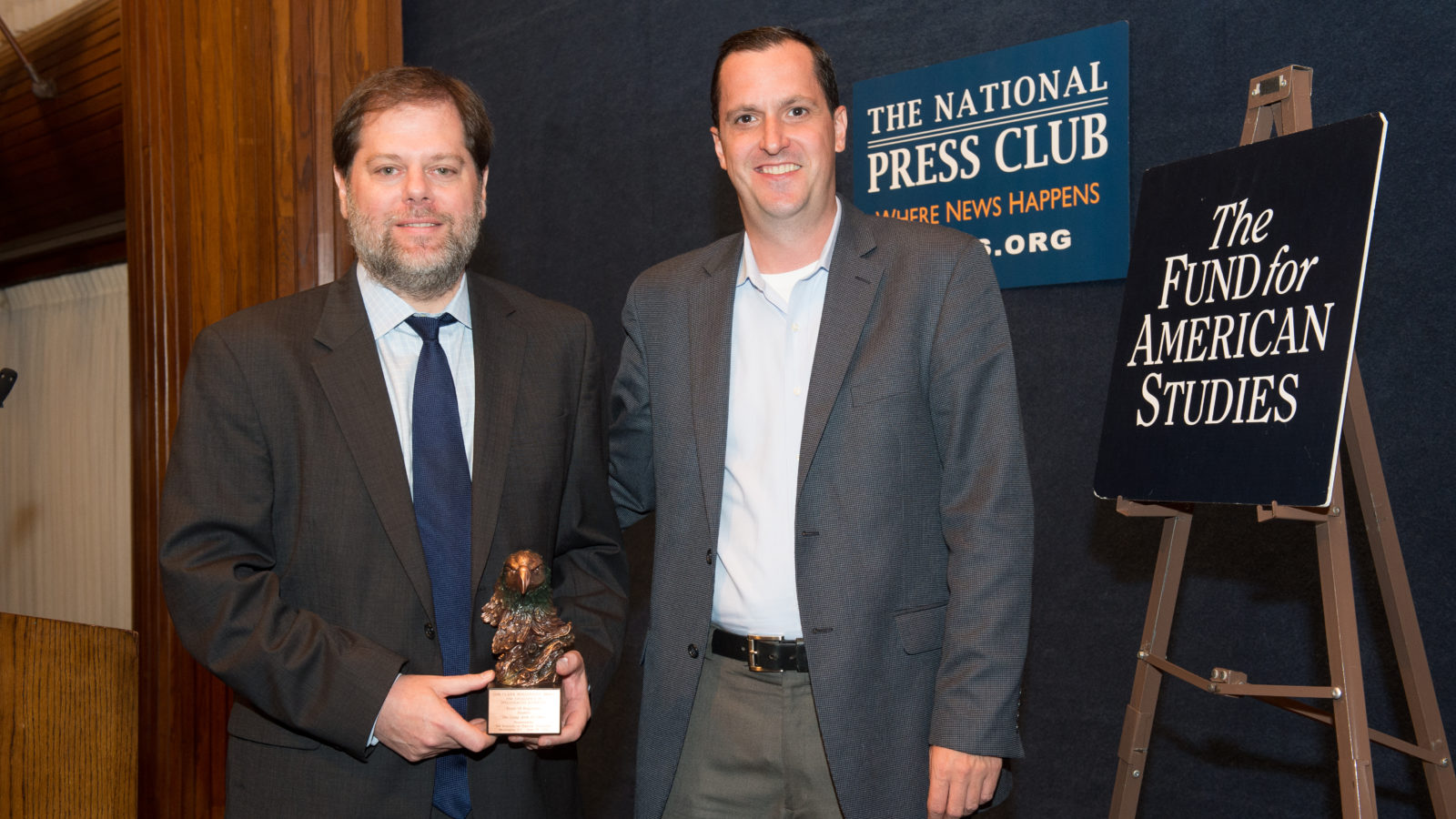
We will not be awarding the Mollenhoff Investigative Reporting Award in 2018 and are not accepting submissions at this time.
The Clark Mollenhoff Award for Excellence in Investigative Reporting is named for the late Pulitzer Prize-winning reporter who conducted groundbreaking investigations into the influence of organized crime in American society. His work led to successful crackdowns on labor racketeering and Teamster Union corruption. Clark Mollenhoff was a professor of journalism at Washington and Lee University and was the director of the TFAS Institute on Political Journalism (IPJ) at the time of his death. View full list of past award recipients.
The Mollenhoff Award for Investigative Reporting is given to the best newspaper, magazine or online story that conforms both to the definition of investigative reporting as originally defined by Investigative Reporters and Editors (IRE) and to the professional standards articulated by Clark Mollenhoff in his critiques of journalism craft. Recipients may be a reporter or team of reporters showing initiative similar to Mollenhoff’s.
About the Sponsoring Organization
The award is sponsored by the Institute on Political Journalism (IPJ), a TFAS academic internship program in Washington, D.C. Each year, approximately 100 outstanding college journalists are chosen to spend the summer in the nation’s capital. They intern at major news organizations, attend site briefings at various government institutions, hear lectures from Washington’s leading reporters and editors and take courses in economics, ethics and leadership at George Mason University.
How to ApplyPlease see below for entry guidelines. The deadline for the 2017 award is March 24, 2017.
Investigative Elements:
It is the reporting, through one’s own work product and initiative, matters of importance, which some persons or organizations wish to keep secret. The three basic elements are that the investigation be the work of the reporter, not the report of an investigation made by someone else; that the subject of the story involves something of reasonable importance to the reader or viewer and that others are attempting to hide these matters from the public.
- Reporter’s own work product: This means that the reporter must have initiated and done this investigation. It is permissible to use excerpts from police records, official investigations, etc. but only incidentally and not as primary proof of the investigative conclusion.
- A Matter of Reasonable Importance: It should be a matter that substantially serves the public interest.
- A Matter that Others are Attempting to Hide: This is the element that more than any other differentiates investigative reporting from depth and explanatory reporting. Corrupt politicians, for example, don’t want people to know they are stealing, so they perform their corrupt acts in ways designed to avoid public discovery. The same applies to polluters, mobsters, price-gougers etc.
The following craft imperatives should be considered toward judging:
- The story must effectively prove its investigative premise.
- Anonymous sources rarely belong in investigative stories and their use should be strongly discouraged.
- The story should be well written and clearly sourced.
- Good packaging and graphics are desirable.
- Strong results, while not always attainable, sometimes help validate investigative stories.
Guidelines for Award Entries:
- Provide a brief letter outlining the nature of the reporting, obstacles overcome, and results obtained, along with your contact information.
- There is no entry form; there is no entry fee. Stories must have been published between Jan. 1, 2016 and March 24, 2017.
- Entry deadline for the materials to be postmarked is March 24, 2017.
- Entries must be from a U.S. publication. International entries are NOT permitted.
- Any format is acceptable-readability is what matters.
- Links to articles may be submitted. Please include contact information of the reporter (s) and pertinent editors. Email links to: jstarrs@TFAS.org
- If you mail your entries, you must submit four copies of your entry.
Submit application materials to:
Mr. Joseph Starrs
The Institute on Political Journalism
1621 New Hampshire Avenue, NW, Washington, DC 20009
For information, please contact IPJ Director Joe Starrs at 202-986-0384 or jstarrs@TFAS.org.

